© 2026 ALLCITY Network Inc.
All rights reserved.

Two days before the first game in franchise history, the Colorado Rockies signed a player many believed would be their first member of the Baseball Hall of Fame.
Dale Murphy was released by the Philadelphia Phillies in the early hours of April 3, 1993 and was just two home runs short of 400 for his career. (At the time, only 24 players had ever reached the milestone.)
Original GM Bob Gebhard signed the former National League Most Valuable Player (1982-83) with hopes that a couple pop ups in the thin air of Denver would carry into the left field bleachers of Mile High Stadium.
Murphy managed just one double in a part-time role through 26 games before announcing his retirement on May 27. Though he stayed on the Hall of Fame ballot for all 15 years, as was the maximum at the time, he still awaits the 75% of votes needed from a veterans’ committee to become enshrined in Cooperstown.
All’s well that ends well and that was certainly the case for the Rockies and their superstar right fielder Larry Walker.
Walker was also on the brink of having to wait for a backdoor opportunity into the Hall, but on his 10th and final ballot, he received the necessary votes (76.6%) from the Baseball Writers’ Association of America to join New York Yankees Derek Jeter in the Class of 2020.
Todd Helton remains on the ballot for the fourth consecutive year and is continuing to trend upward in his percentages. His first year was 16.5%, followed by 29.2% and 44.9% last year. The early ballots for 2022 suggest another increase support by BBWAA voters, suggesting Helton may not have to wait the full 10 years to find his place in the Hall of Fame.
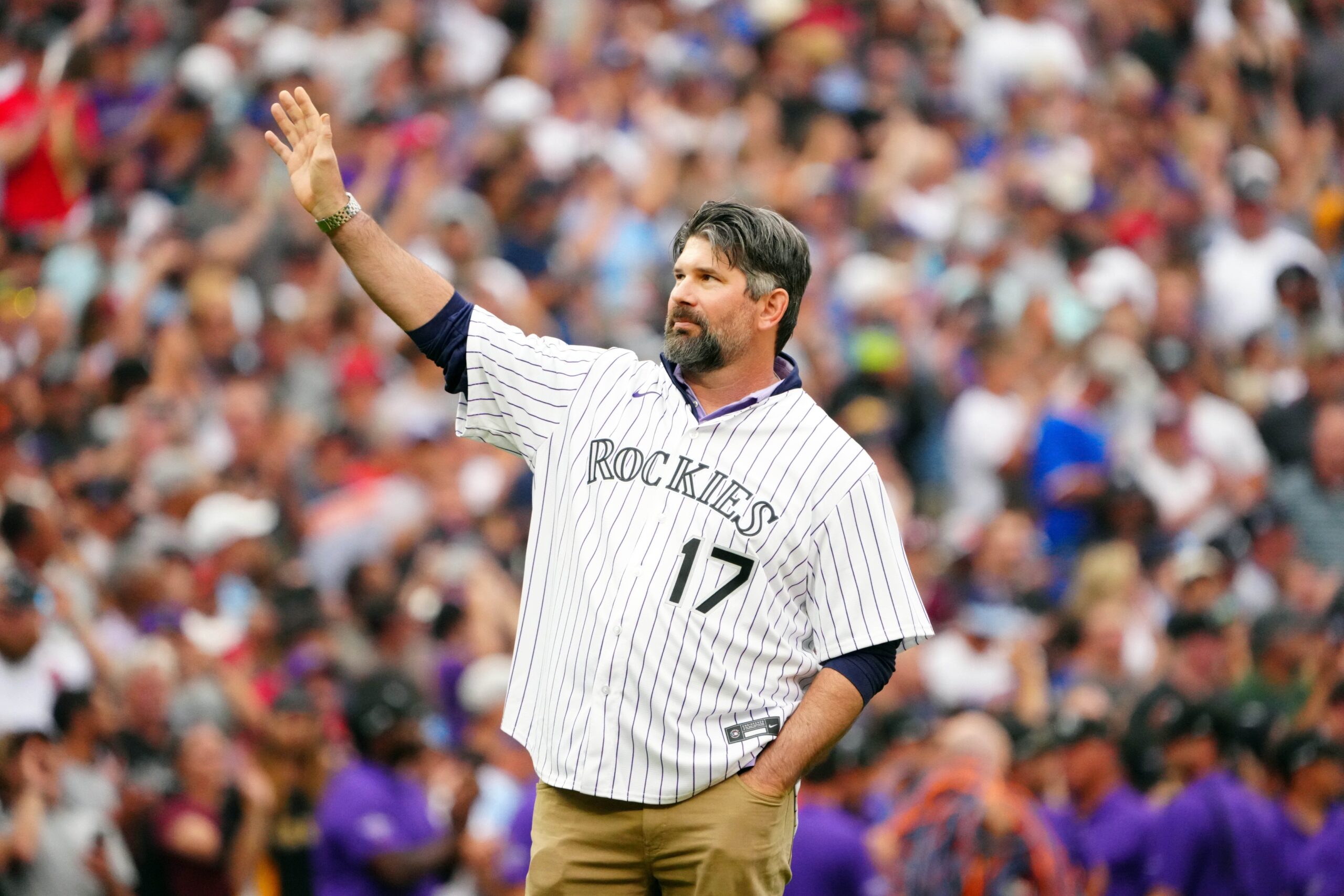
While some active Colorado players – both current and former – still have several years left to bolster their career resumes, many of the organization’s best Hall of Fame candidates retired years ago, some of whom have never been eligible for a vote or have fallen off ballots after receiving less than five percent of votes.
The following is a comprehensive list of every catcher, outfielder and starting pitcher from the Rockies organization who have made the prestigious Hall of Fame ballot.
Catchers
Sandy Alomar Jr. – 2013 ballot, 16 votes (2.8%)
Charles Johnson – 2011 ballot, 0 votes
Colorado acquired the 36-year-old backstop Sandy Alomar Jr. from the White Sox via trade at the deadline in 2002 for the final two months of the season. His father, Sandy Alomar Sr. would coach with the Rockies in 2003 and 2004.
Alomar Jr. was National League Rookie of the Year with the Padres in 1990 and was selected to the All-Star Game six times. He was a mainstay with Cleveland during the 90’s and contributed to five straight playoff appearances with the organization.
He’s been a coach with Cleveland since 2010 and if his number 15 is retired for his contributions to the franchise, it could go a long way for earning himself a place in Cooperstown via a veterans’ committee.
Future Consideration: Chris Iannetta (2025)
Iannetta called it quits in 2020 as a member of the Yankees despite playing his last big league game with the Rockies in 2019. With 141 home runs and 502 RBI during his 14-year career, he’s considered the 111th best catcher of all-time by JAWS, a metric created by Jay Jaffe to quantify a player’s Hall of Fame qualifications.
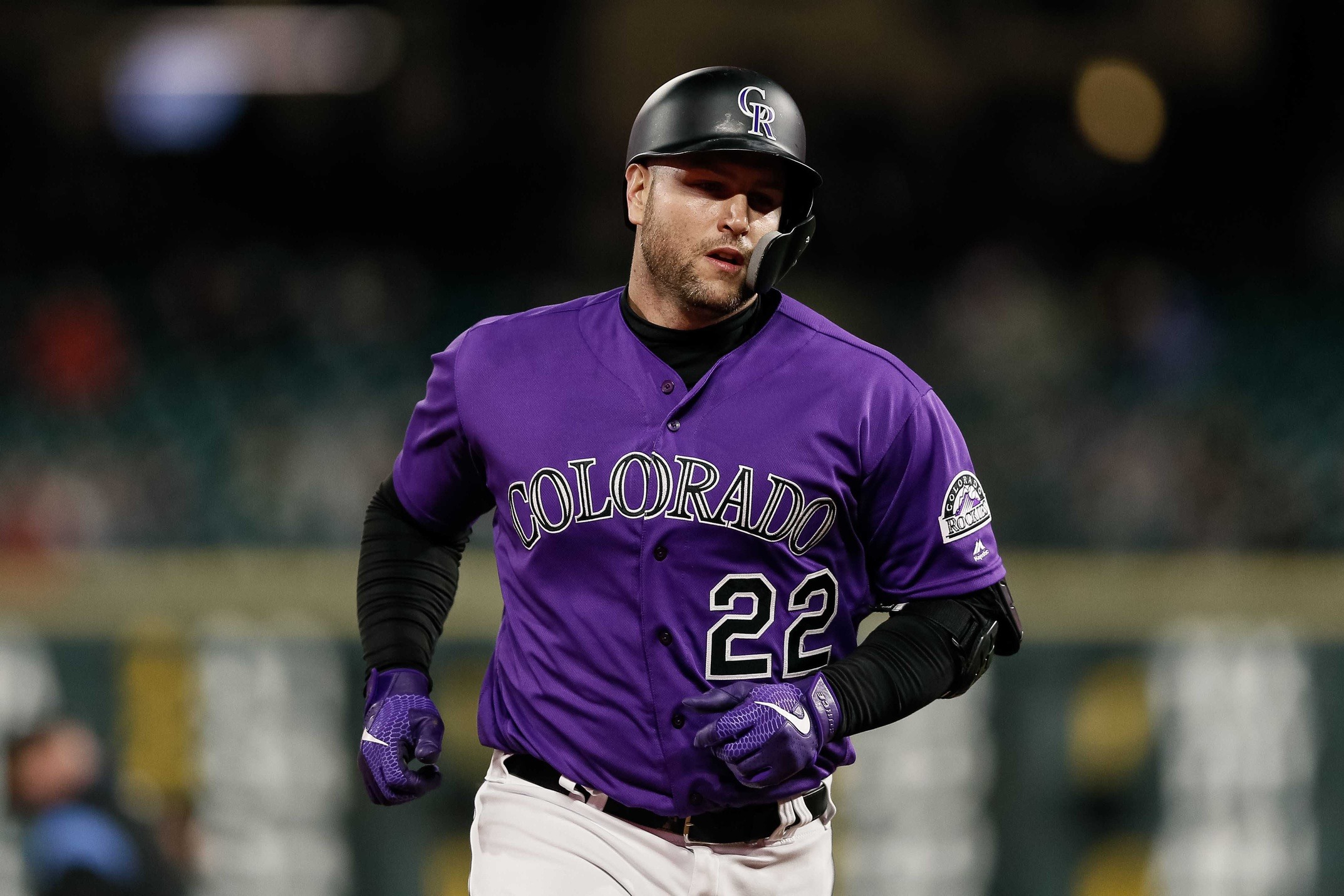
Brad Ausmus, who played with Colorado’s Triple-A affiliate in Colorado Springs in 1993 before being dealt to the San Diego Padres, is currently ranked 106th by JAWS and was able to make the ballot in 2016 (receiving no votes), giving Iannetta some hope that he could be placed on the 2025 ballot.
Outfielders
Dale Murphy – 1999-2013 ballots, 106 votes in final year (18.6%)
Dante Bichette – 2007 ballot, 3 votes (0.6%)
Ellis Burks – 2010 ballot, 2 votes (0.4%)
Making his mark with Atlanta for fifteen seasons, Dale Murphy is one of a handful of players to have won back-to-back MVP Awards (1982-83). The center fielder from BYU was an All-Star seven times and won five Gold Gloves to go along with four Silver Sluggers.
Murphy is one of just five original Rockies from 1993 to find their way onto a ballot. So respected by BBWAA voters that he stuck around for the full 15 years, as was the maximum at the time.
Jaffe’s metric places Murphy as the 27th greatest center fielder of all-time, just behind Hall of Famers Kirby Puckett and Max Carey, and nine-time All-Star Fred Lynn. He’s a prime candidate to go to Cooperstown via veterans committee at some point in the future, especially when considering an era like the 1980’s has been under represented.
Much like fellow Blake Street Bombers Andrés Galarraga and Vinny Castilla, Dante Bichette reached his potential in Denver. The four-time All-Star won a Silver Slugger and came up short of being the NL MVP in Colorado’s first postseason in 1995.
Bichette’s Cooperstown candidacy does not fare well when reflecting on his wins-above-replacement, which is severely reduced by negative valuations for his defense. Because of this, JAWS ranks him as the 264th best right fielder, or three spots below PH/OF John Vander Wal.
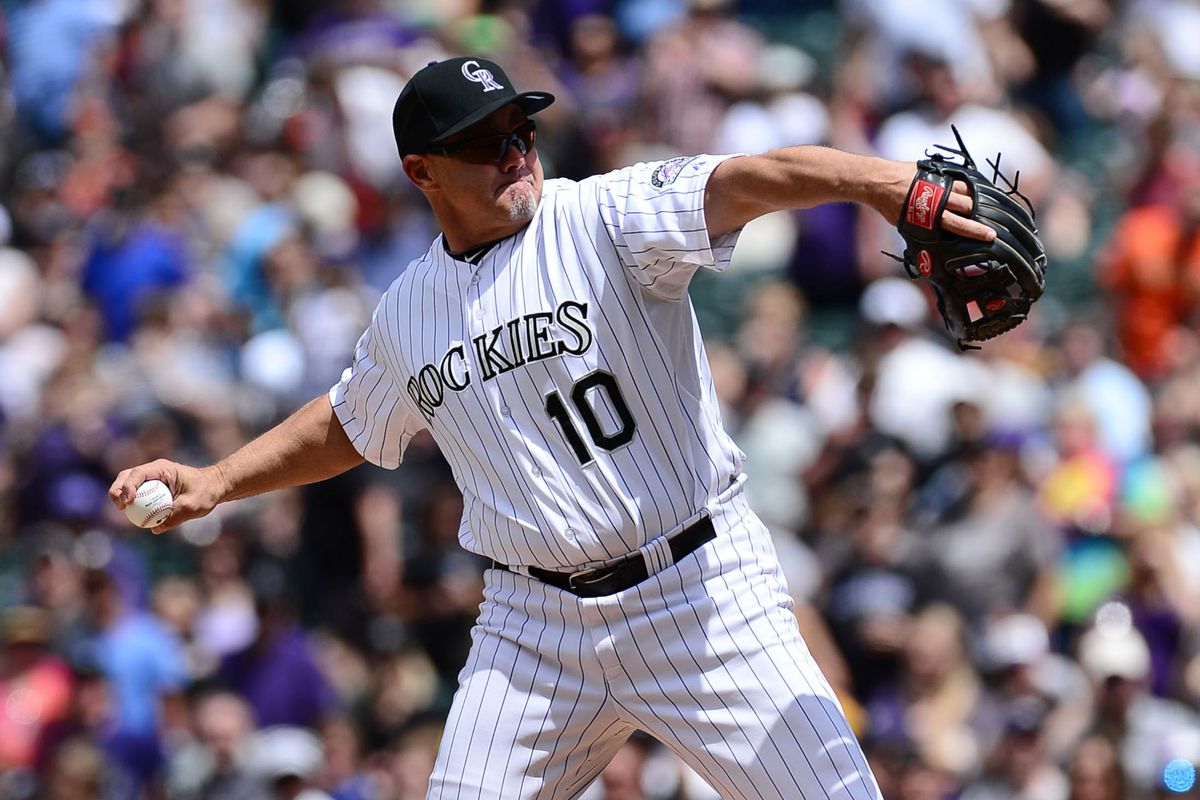
Ellis Burks played in parts of five seasons with the Rockies and celebrated his best season at age 31 with the franchise, earning an All-Star nod and a third-place finish in MVP voting. A center fielder for much of his career, Burks is ranked as 35th best at the position, one spot ahead of Torii Hunter and two spots behind recently-retired Curtis Granderson.
Honorable Mention: Ron Gant – 2009 ballot, 0 votes; Greg Vaughn – 2009 ballot, 0 votes; Jeromy Burnitz – 2012 ballot, 0 votes; Steve Finley – 2013 ballot, 4 votes (0.7%); Juan Pierre – 2019 ballot, 0 votes; Michael Cuddyer – 2021 ballot, 0 votes
Future Consideration: Matt Holliday (2024), Carlos González (2025), Matt Kemp (2026)
Matt Holliday called it a career after 15 seasons in MLB, spending 2018 back where it all began at Coors Field. Though he’s recognized more as a Cardinals players since he spent two more seasons with the club, and accumulated more home runs, runs batted in and WAR with St. Louis, he’ll long be remembered sliding head first into home to win Game 163 for the Rockies against the Padres in 2007.
Ranked 36th by JAWS among left fielders, he’s out of reach for what might be considered the lowest rung of Hall of Famers at the position. Lou Brock, enshrined in 1985 on his first ballot, ranks one spot behind Holliday in this metric, so fans and voters could have a lot to banter about.
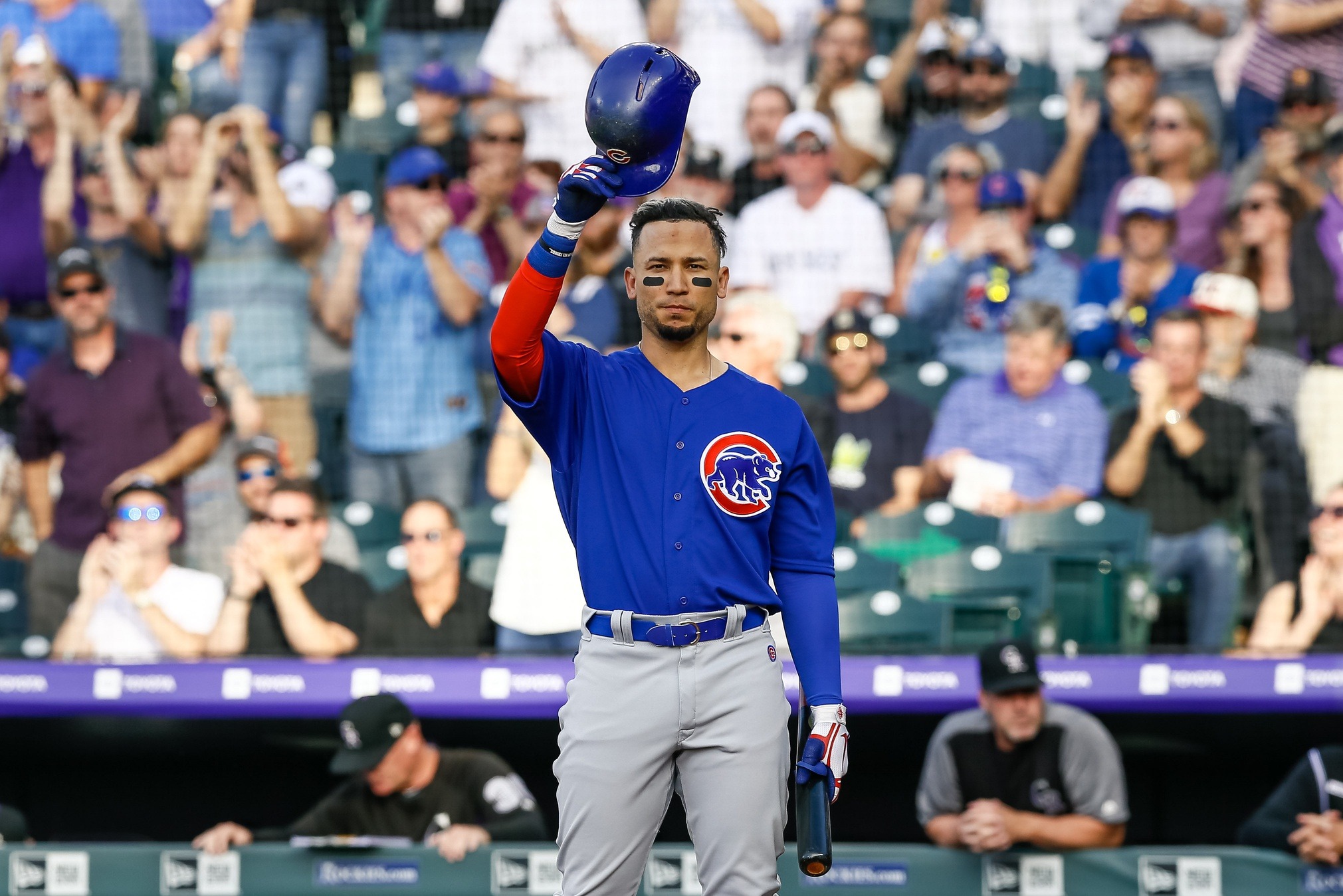
With three All-Star appearances to go along with three Gold Gloves and two Silver Sluggers, Carlos González had an outstanding showing through 12 big league seasons. Injuries sapped CarGo’s numbers in all categories, including the length of his career, contributing to his ranking as the 93rd greatest left fielder, according to JAWS.
Starting Pitchers
Bret Saberhagen – 2007 ballot, 7 votes (1.3%)
Jamie Moyer – 2018, 10 votes (2.4%)
During the lockout shortened 1995 season, the Rockies acquired Mets starter Bret Saberhagen in their push to win the NL West and fortify a rotation that would use twelve different starting pitchers. (One dubious distinction that season: Saberhagen is likely the first Rockie with more than a decade of experience to have worn two different uniform numbers in the same season during his two month stint with the club.)
Before his time in the Centennial State, Saberhagen won two American League Cy Young Awards with Kansas City and made three All-Star teams. His 1985 season goes down as one of the most complete for a starting pitcher in baseball history, having won the AL CYA carrying the Kansas City Royals into the playoffs and winning the World Series MVP for the franchise’s first championship.
Jamie Moyer joined Colorado a full decade after Saberhagen, despite being over a year older. Though he’s more known for nearly pitching into his age-50 season, a decent case could be made for his place in Cooperstown.
His 269 wins is 35th most all-time and more than Hall of Famers Jim Palmer, Bob Gibson and Juan Marichal, all of whom pitched sixteen or more seasons. While it did take Moyer 25 seasons to rack up that total, only four players ever managed to play 26: Hall of Famers Nolan Ryan and Cap Anson, and Hall of Very-Good Deacon McGuire and Tommy John.
Moyer received Cy Young Award votes in three seasons, all after the age of 35, and earned his first All-Star selection at the age of 40.
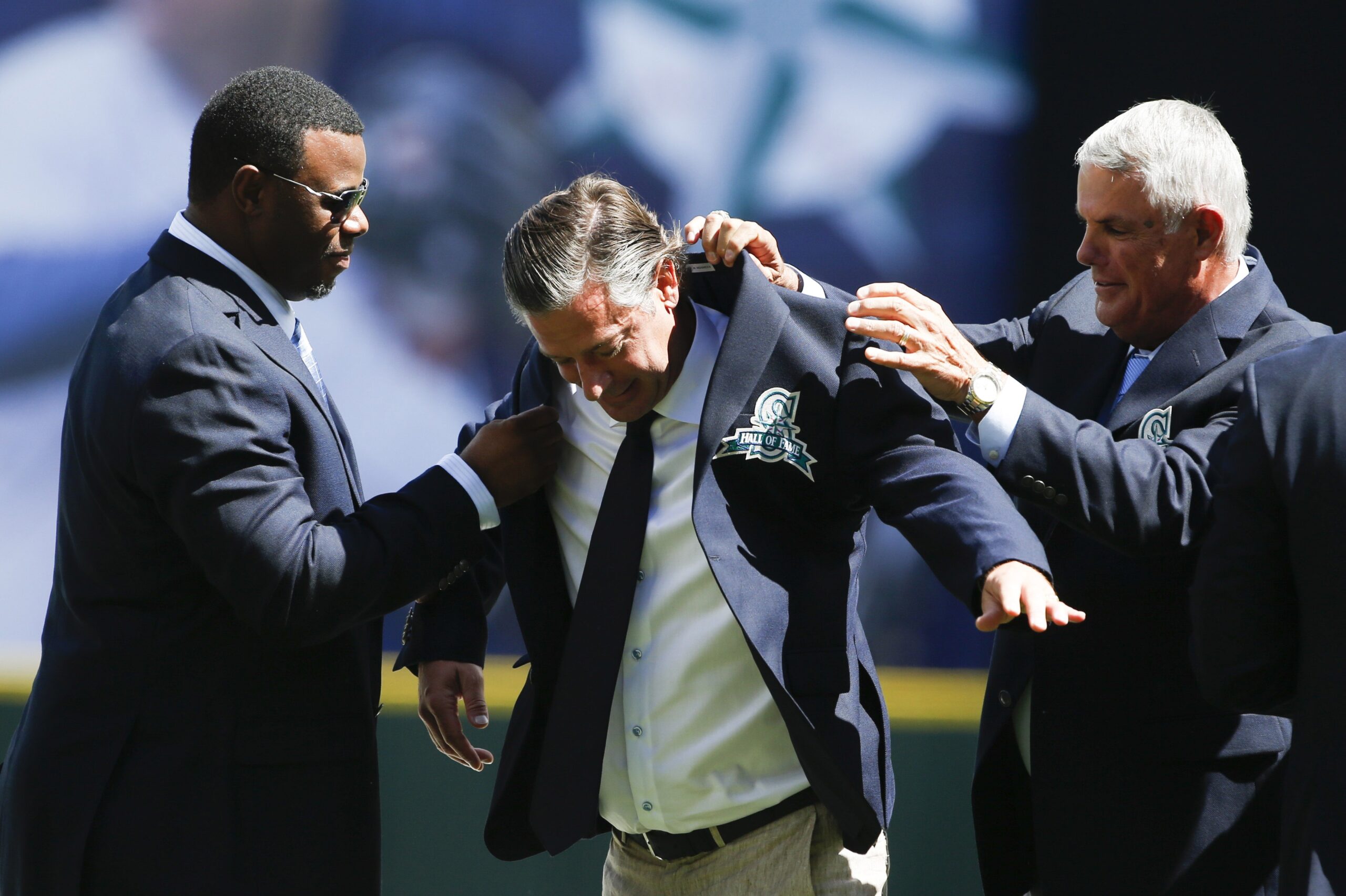
According to JAWS, his rating of 125th for starting pitchers may make it improbable for Moyer to earn enshrinement, but the recent selection of Jim Kaat (25 seasons, 287 wins and 109th JAWS ranking) should provide some hope.
Honorable Mention: Bruce Hurst – 2000 ballot, 1 vote (0.2%); Darryl Kile – 2003 ballot, 7 votes (1.4%); Mike Hampton – 2016 ballot, 0 votes; Liván Hernández – 2018 ballot, 0 votes; Kevin Millwood – 2018 ballot, 0 votes; Roy Oswalt – 2019 ballot, 4 votes (0.9%); Jon Garland – 2019 ballot, 0 votes
Future Consideration: Ubaldo Jiménez (2023)
Ubaldo Jiménez pitched for 12 seasons with Colorado, Cleveland and Baltimore. His 114 wins from 2007-2017 rank as the 20th-most by a pitcher during that time. However, Jiménez may be a long-shot to make the ballot next year despite having the second-most strikeouts (1720) of those pitchers who retired in 2017 behind only John Lackey (2294).
He will forever be remembered for that remarkable 2010 season in which he tossed the only no-hitter in Rockies history, won 15 games in the first half, started the All-Star Game for the NL and finished third in NL Cy Young Award voting, highest in franchise history.
Comments
Share your thoughts
Join the conversation




